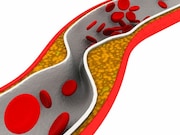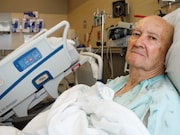Machine Learning IDs Risk for Familial Hypercholesterolemia
Classifier developed using EHR data identifies patients at highest probability threshold for FH
Surgical Site Infection Rates May Differ by Gender
SSI rates differ by gender for certain procedures, including increased risk for women after heart surgery
Sixty People Charged in Massive Opioid Painkiller Investigation
Individuals linked to about 350,000 prescriptions and 32 million pills
Stroke Hospitalizations Down in Black, White Medicare Enrollees
Black men and women have experienced greater improvements in 30-day poststroke mortality
AI Can Identify Model of Cardiac Rhythm Device From Chest X-Ray
Neural network's performance significantly exceeds ability of cardiologists
Sleep Myths Are Commonly Circulated
Authors say initiatives to debunk myths, promote healthful sleep practices may benefit public health
Hand Hygiene Compliance Poor in Task Transitions
Hand hygiene compliance was 50.8 percent when health care workers moved from dirtier to cleaner tasks
More Than 80 Percent of STEMI Patients Treated in ICU
However, only 16.2 percent of patients develop complications requiring ICU care while hospitalized
Over Half of Patients Have Suboptimal Response to Statins
Suboptimal responders have increased risk for incident cardiovascular disease
Intensive BP Lowering May Up Cognitive Decline in Elderly
For those on antihypertensive treatment, cognitive decline greater with SBP <130 versus >150 mm Hg



















